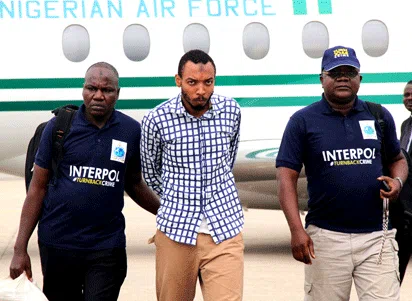ELEVEN years after the devastating twin bombings in Nyanya, a suburb of Abuja, the Federal Government on Monday formally reopened the trial of Aminu Ogwuche and five others alleged to be the masterminds of the April 14, 2014 attack that killed over 70 people and left scores wounded.
The high-profile terrorism case, which had stalled for years due to multiple procedural and prosecutorial lapses, resumed before Justice Peter Lifu of the Federal High Court, Abuja.
The trial had previously been overseen by Justice Ahmed Mohammed, who was elevated to the Court of Appeal. The reassigned judge, Justice Lifu, had earlier warned of the potential dismissal of the case due to repeated non-appearances by the prosecution.
When the matter was called up on Monday, prosecuting counsel David Kasue reminded the court of an earlier order permitting witness protection. He requested that only legal counsel directly involved in the case and accredited media personnel be allowed inside the courtroom during testimony.
Justice Lifu, however, rejected Kasue’s attempt to exclude law students observing proceedings, stating that their presence was essential for learning.
The prosecution’s first witness (PW1), a Department of State Services (DSS) operative with over 23 years of experience, entered the courtroom wearing a face mask and hood to conceal his identity. Defense counsel Nureni Jimoh, SAN, representing Ogwuche, objected to the face covering but later conceded when the witness said he would not feel safe testifying otherwise.
Led in evidence, PW1 recounted the intelligence operation that led to the arrest of the defendants. According to the witness, the DSS had arrested and interrogated the third defendant, Mohammed Ishaq, who identified Ogwuche as a key financial backer of the Boko Haram cell behind the bombing.
He revealed that Ogwuche had previously been on the DSS radar and had been deported from the United Kingdom years earlier over suspected extremist ties.
However, Jimoh raised an objection, insisting that any claims about the defendant’s deportation must be backed by documented evidence. Kasue countered by invoking Section 7 of the Evidence Act, asserting that oral testimony of relevant facts was admissible.
Justice Lifu reserved ruling on the admissibility of the deportation evidence until his final judgment.
The DSS witness said pictures were shown to the third defendant based on his description of a suspect who frequented a mosque in Utako. Ishaq reportedly identified Ogwuche’s photo and confirmed his role, saying Ogwuche often associated with a known extremist identified as Ahmed Rufai Abubakar, alias “Dr Tsiga.”
PW1 added that Ishaq confessed to driving the car packed with explosives to El-Rufai Park in Nyanya alongside Dr Tsiga, who remains at large.
According to the witness, Ogwuche himself admitted in a statement that he became involved with the sect through the Utako mosque, believing they were “fighting a just cause for God.”
When the prosecution sought to present the defendants’ written confessions, they were unavailable. Justice Lifu reprimanded the prosecution for failing to give prior notice for retrieving the documents from court records.
The matter was adjourned to July 24, 2025, for the continuation of trial.
The accused persons Aminu Ogwuche (a.k.a. Abu Ibrahim / Maiturare), Mohammed Ishaq, Ya’u Saidu (a.k.a. Kofar Rama), Anas Isah, and Adamu Yusuf are being prosecuted for their alleged roles in the coordinated bombing at Nyanya Motor Park, which targeted morning commuters in one of Abuja’s busiest transit hubs.
The attack, which occurred just before 7 a.m. on April 14, 2014, shocked the nation and drew international condemnation.
Ogwuche was later extradited from Sudan in collaboration with Interpol and Nigerian authorities.
The trial had languished in the judicial system, bogged down by changes in judges, absent prosecutors, and logistical failures.
Justice Lifu previously warned that the case risked dismissal if the Federal Government failed to pursue the matter diligently. Monday’s proceedings marked a turning point in the case’s revival.
As Nigeria continues to grapple with terrorism-related cases, the resumption of the Nyanya bombing trial signals renewed effort to bring closure to one of the country’s most horrific attacks.







